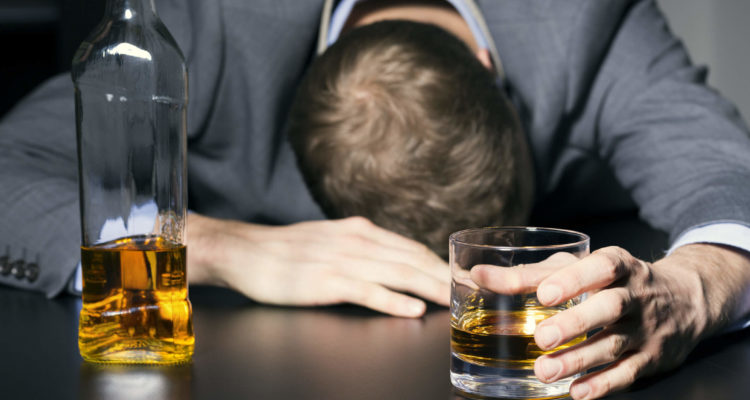
Alcohol interferes with normal sleep: doctors explained the danger
0
Alcohol can help to fall asleep faster than usual, but it leads to sleep disturbances. Alcohol also has a negative effect on the central nervous system when combined with sleeping pills.
The New York Times writes about the dangers of such drinks, citing specialized doctors. Doctors agree that alcohol disrupts the so-called architecture of sleep, which has to go full circle before you wake up. This will result in disturbed and poor-quality sleep, which will not allow your body to rest.
“You pay for the alcohol you drank in the evening in the second half of the night,” said Dr. Jennifer Martin, a psychologist and professor of medicine at the University of California, Los Angeles. .
She explained that alcohol has a sedative effect at first, but it disrupts the second half of the sleep period, causing the person to wake up frequently.
According to the doctor, during the first half of the night, when there is still a fairly high level of alcohol circulating in the blood, you will sleep deeply and without dreams. This is due to the fact that alcohol acts on gamma-aminobutyric acid (GABA) – the main inhibitory neurotransmitter of the brain, which suppresses impulses between nerve cells and has a calming effect. But later, when the alcohol levels are down, your brain will start to reset and interrupt your sleep.
Alcohol is also a strong diuretic, which means you may wake up frequently to go to the bathroom. The diuretic action causes the body to lose a lot of fluid, leading to dehydration.
People may also snore more after drinking. Alcohol is a muscle relaxant and relaxes the muscles of the upper respiratory tract, disrupting normal breathing. It also complicates the problem of sleep apnea, when the airway temporarily blocks during sleep, preventing a person from breathing.
When this happens, the person wakes up to catch their breath and then falls back asleep. This can be repeated dozens of times during the night, which significantly reduces sleep time.
In addition, doctors warn that the combination of sleep apnea, snoring and alcohol consumption increases the risk of heart attack, arrhythmia, stroke and even sudden death.
Since alcohol depresses the central nervous system, experts warn against using it with sleeping pills.
“Alcohol has a sedative effect. I wouldn't recommend taking any sedative sleeping pills after you've been drinking, regardless of whether they're over-the-counter or not,” said Dr. Ilene M. Rosen, a physician-sonologist and associate professor at the Perelman School of Medicine at the University of Pennsylvania.
In order to avoid all troubles and possible risks, experts advise – if you want to drink, do it as early as possible, preferably a few hours before bedtime and in small quantities.
“It is normal to drink a glass wine with dinner four hours before bedtime,” advises Dr. Sabra Abbott, associate professor of sleep medicine neurology at Northwestern University Feinberg School of Medicine.









Leave a Reply